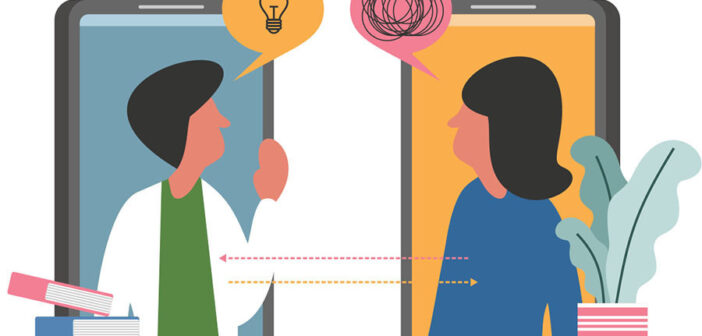Since 1955, American mental health care has been moving away from institutional settings and into the community at large. What started as the stated goal of the government to increase the dignity of patients with mental health concerns, decrease their stigmatization, and of course, to reduce its budget by shifting away from centralized and inhumane “insane asylums” and mental hospitals, toward community-based mental health centers and shorter term treatment facilities, continues even to this day. Sadly, the deinstitutionalization of the American mental health care system left large gaps in access to critical mental health services for patients in need and their communities. Access to mental health care remains challenged, stretched and even stigmatized by many in 2021.
Enter the COVID-19 global pandemic, and the ongoing mental health crisis in America was set to explode further. Existing mental health conditions were set to be exacerbated. Racial, ethnic and sexual identities have been further marginalized and made even more vulnerable to systemic prejudices and poor health outcomes. Anxiety has run rampant, with fears of mortality, chronic illness, and loss of jobs looming. Agoraphobia, the fear of going outside the home, has become normalized with stay at home orders critical to keeping the virus at bay. PTSD from ICU care was a known concern now faced by many more thousands of Americans annually. Complex grief has set in for those not able to be with loved ones as they passed away from this illness and were buried in quiet services without family present. Substance abuse has been inflamed with the lack of outlets for socialization and needs for means to calm the fears arising daily. Depression looms as the winter sets in. And so many other conditions go untreated, including mental health conditions arising from social factors such as domestic violence, child abuse, elder abuse and general neglect.

Yet in times of struggle like these, as has been noted elsewhere, innovations can arise which create opportunity to support ever-growing numbers of patients in need. Telehealth, specifically telemental health, is nothing new during this pandemic era. However, telemental health has seen growing validation and support, acknowledging it as a viable and effective mode for delivering critical services, such as behavior health interventions.
Whereas funding for community-based mental health care has still not caught up to the levels that it needs to be in order to make up for the wide gaps left by government retreat back in the 1960s, the growing interest in telehealth and telemental health services does stand to increase access, if even by degrees, in the wider community. In the acute care setting, telehealth is being utilized to increase the reach of critical psychiatric and social needs assessments in order to cover hospital settings in rural areas where 24-hour access to such services has yet to be funded or ensured. The ability to assess for psychiatric and social need, even at a distance, can make the difference between an avoidable hospitalization for social admission, or an inappropriate admission that could otherwise be treated in the community on the basis of safety planning and partial hospitalization or outpatient supports. Clinical social work case managers are uniquely poised to assist in this process of assessment, diagnosis and referral for treatment.
In subacute settings, the use of telehealth has sped up the process of both admission and discharge, utilizing rehab to hospital secure video consults to assess for level of care needs, as well as primary care and primary behavioral care assessment to assure continuity of care upon discharge to home. And finally, in the community and at home, a burgeoning access to telehealth through a variety of platforms, insurance-based services and private practitioners has led to a phenomenal increase in the availability of ongoing treatment for mental health and chemical dependency supports.
While no one planned for this pandemic, and no one could have predicted the many ways that our healthcare and mental health care delivery would be impacted, most everyone can likely agree that telehealth and telemental health have bridged the gaps in care needed most urgently. And without doubt, much of this change is here to stay. In some states, parity of reimbursement for telehealth and telemental health services has already been enshrined in legislation. We can only assume that such progressive ideals will become wider spread as patients and providers alike continue to embrace the convenience and efficacy of available remote services. There is still a long way to go in recognizing the original goals of community-based care, fully funded, to bring dignified and competent care to patients suffering with a mental health condition. The growth of telemental health infrastructure may go a long way toward meeting these needs and improving outcomes.





